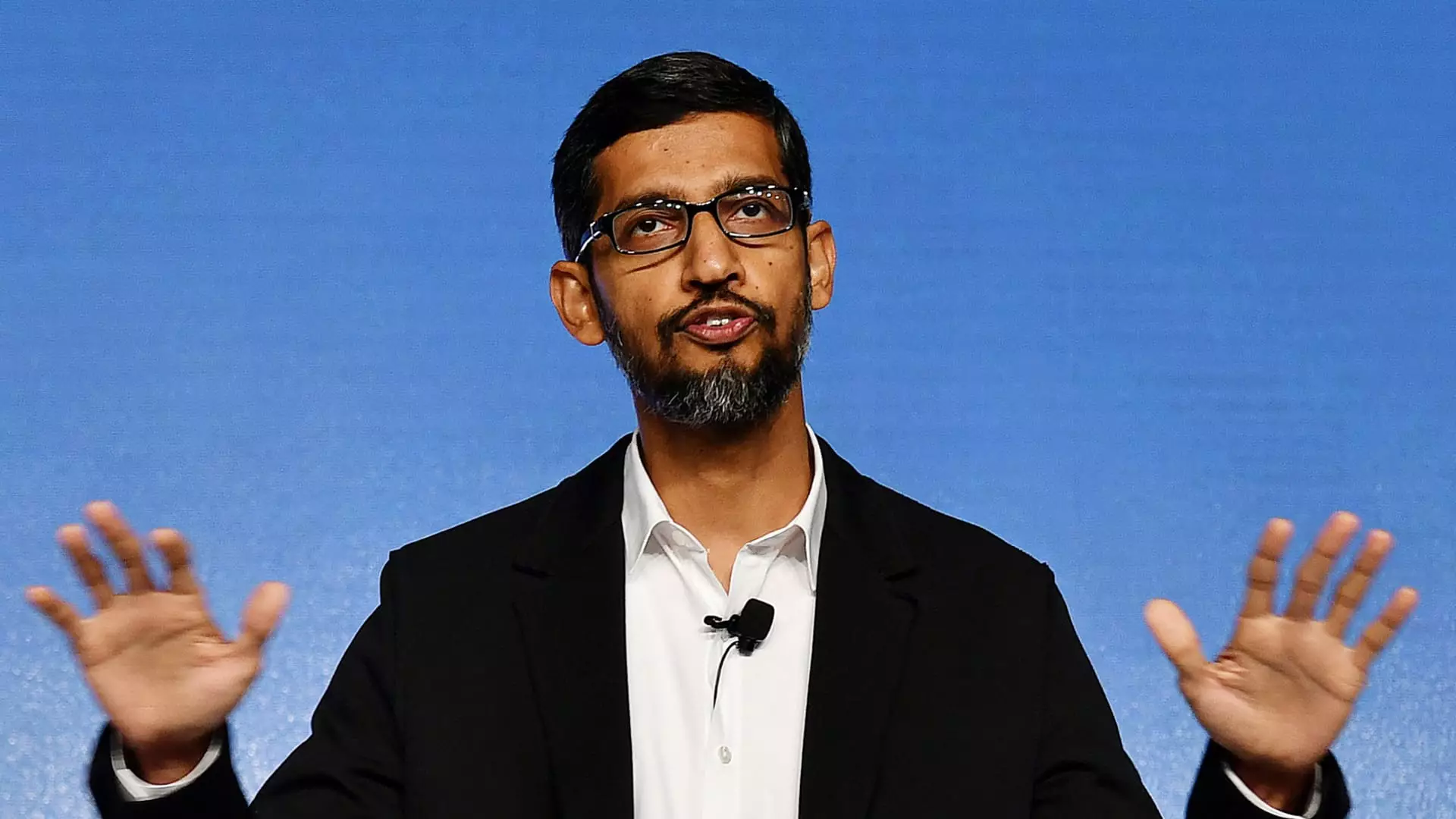In recent developments surrounding the corporate culture at Google, the tech giant has taken a resolute stance in managing internal discussions related to politics, particularly in the lead-up to the U.S. elections. As reported by CNBC, Google executives communicated to employees a strict directive to keep political opinions and comments out of the internal discussion platform referred to as Memegen. This action raises vital questions about free speech, corporate governance, and employee morale within a company that plays a significant role in shaping public discourse.
The measure, which comes amidst heightened political tension, underscores a growing trend among technology companies to regulate the political expressions of their employees. In a memo sent by CEO Sundar Pichai, the leadership reminded staff that Google’s services are utilized for the dissemination of “high-quality and reliable information,” emphasizing the need for the company to remain an unbiased source. The directive appears to stem from a desire to maintain the integrity and reputation of Google’s platforms amid increasing scrutiny from various political factions.
While leadership is undoubtedly entitled to establish boundaries for discourse within their organization, these restrictions may also lead to a chilling effect on free expression. Employees might feel hesitant to share views or engage in important political conversations for fear of reprisal or reprimand, potentially stifling creativity and open dialogue—qualities that many tech cultures pride themselves on fostering.
Historically, Google’s approach to internal discussions has undergone substantial transformations. In 2019, the introduction of a policy meant to limit statements that could “insult, demean, or humiliate” colleagues marked a decisive pivot towards a corporate culture less tolerant of political discourse. This shift was not without contention: many employees expressed concern that such policies were excessively prohibitive and vague.
For tech companies, the balance between fostering an inclusive workplace and allowing for diverse viewpoints poses a formidable challenge. In 2020, Google expanded its internal content moderation practices, where employees were tasked with the proactive oversight of discussions. This move was framed as an enhancement aimed at promoting respectful dialogue; however, it also placed the burden of moderation on employees, potentially creating a divisive atmosphere.
The recent rise in stringent measures has led to discontent among staff members, particularly regarding policies related to the controversial Project Nimbus contract with the Israeli government. Employees have raised concerns, and protests have emerged, illustrating disapproval of the company’s commercial partnerships. In this political climate, employees have used platforms like Memegen to express solidarity with one another during key political events.
Yet, the tightening of restrictions on platforms like Memegen, including bans on sharing personal political opinions and commentary on relevant national events, has left some employees voicing frustration. Anecdotes from affected workers reveal feelings of powerlessness when their contributions are erased or deemed unacceptable by internal management teams. Notably, some who attempted to share supportive or humorous messages were surprised to find their content taken down, raising questions about the criteria applied—and, importantly, whether these actions could lead to a culture of self-censorship.
Continuous moderation of political expression in workplaces not only transforms internal community interaction but may also affect how employees perceive the values of the company they represent. When Google discourages discussion on significant societal issues, some employees might find it increasingly difficult to connect their day-to-day roles with broader company missions and goals.
Moreover, Google’s decision to implement artificial intelligence to monitor content may inspire more apprehension within the workforce. The notion that AI could potentially surveil internal conversations adds a layer of distrust; employees may feel they are being actively monitored, which could create a less transparent work environment.
As companies navigate complex socio-political landscapes, it remains crucial for them to find a balance between maintaining a professional environment and allowing employees to express their diverse viewpoints. Google is at a crossroads, and its approach to moderating political discourse within its workforce may symbolize a broader trend in corporate America. Finding a path that upholds the values of free speech while ensuring respect in workplace discussions will be essential not only for employee satisfaction but also for fostering a corporate culture that thrives on innovation and inclusivity. As society grapples with these big questions, tech giants like Google find themselves under scrutiny, testing their dedication to the principles of equity and transparency.


Leave a Reply